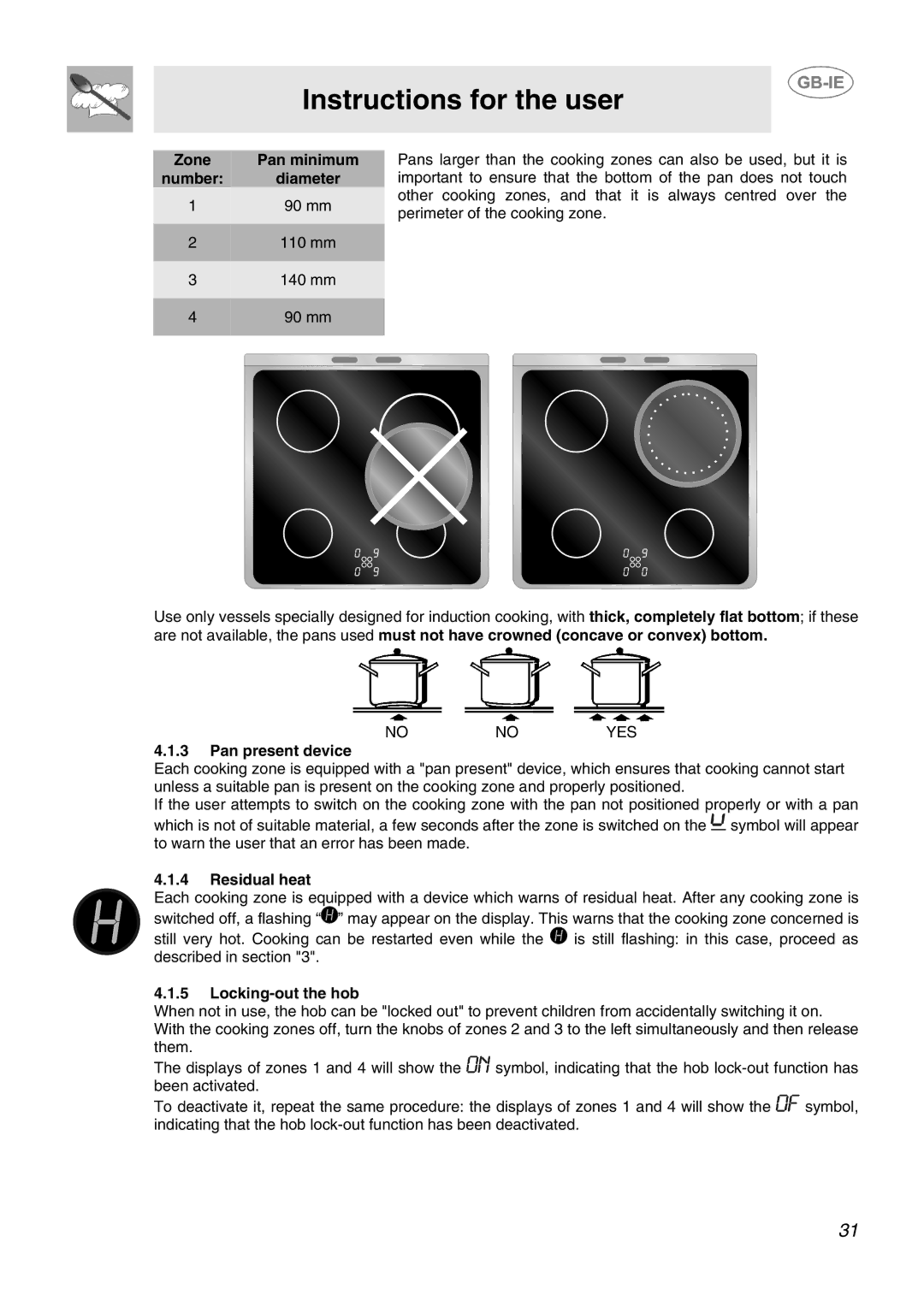
Instructions for the user
Zone | Pan minimum | |
number: | diameter | |
1 | 90 mm | |
|
| |
2 | 110 mm | |
|
| |
3 | 140 mm | |
|
| |
4 | 90 mm | |
|
|
Pans larger than the cooking zones can also be used, but it is important to ensure that the bottom of the pan does not touch other cooking zones, and that it is always centred over the perimeter of the cooking zone.
Use only vessels specially designed for induction cooking, with thick, completely flat bottom; if these are not available, the pans used must not have crowned (concave or convex) bottom.
NONOYES
4.1.3Pan present device
Each cooking zone is equipped with a "pan present" device, which ensures that cooking cannot start unless a suitable pan is present on the cooking zone and properly positioned.
If the user attempts to switch on the cooking zone with the pan not positioned properly or with a pan which is not of suitable material, a few seconds after the zone is switched on the ![]() symbol will appear to warn the user that an error has been made.
symbol will appear to warn the user that an error has been made.
4.1.4Residual heat
Each cooking zone is equipped with a device which warns of residual heat. After any cooking zone is switched off, a flashing “![]() ” may appear on the display. This warns that the cooking zone concerned is still very hot. Cooking can be restarted even while the
” may appear on the display. This warns that the cooking zone concerned is still very hot. Cooking can be restarted even while the ![]() is still flashing: in this case, proceed as described in section "3".
is still flashing: in this case, proceed as described in section "3".
4.1.5Locking-out the hob
When not in use, the hob can be "locked out" to prevent children from accidentally switching it on. With the cooking zones off, turn the knobs of zones 2 and 3 to the left simultaneously and then release them.
The displays of zones 1 and 4 will show the ![]() symbol, indicating that the hob
symbol, indicating that the hob
To deactivate it, repeat the same procedure: the displays of zones 1 and 4 will show the ![]() symbol, indicating that the hob
symbol, indicating that the hob
31
